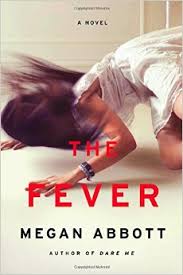Everything I Never Told You by Celeste Ng
If there’s one sub-section within the crime genre that I have a particular fondness for, it’s crime novels in which no actual crime takes place. Ng’s novel opens not with a death, but with the knowledge of a death – Lydia is dead. But they don’t know this yet. A family sit together having breakfast, filled with their own concerns and immersed in routines so familiar they perform them on autopilot with no idea that these moments of normality are about to end. This feels so familiar, the opening of so many crime novels and TV series. A body will be discovered, the family, devastated, will be plunged into a new routine of suspicion and counter-suspicion, dark secrets will be uncovered as we, along with them, seek insight into the identity of the murderer.
This novel is different, however. Ng selects an omniscient third person point of view to tell her story, a choice that is not only unusual these days, but – to my mind at least – the most difficult to engineer successfully. I felt discomfited by it at first – multiple viewpoints in a single paragraph, I thought, ugh – but it wasn’t long before I was entirely seduced by Ng’s storytelling. Her writing has an honest, unfettered quality that is compelling. She tells instead of shows whenever she damn well feels like it, and I was cheering her on. It would seem that what matters most to Ng is not to appear clever, to demonstrate virtuosity or fireworks or how much she knows about how to write, but to tell this story about these five (six, if you count Jack, which you should) characters, to allow us access to the hidden corners of their lives.
Other readers have spoken about this book as a social novel, a novel about racism, about women’s emancipation, about the 1970s, about family. It is all of those things. The feminist and race issues are sensitively handled – one experiences sympathy for both Marilyn and James as a dull ache, an echo of their own isolations and anxieties – and I don’t think I’ve ever read a novel about family that so wonderfully evokes the tangled skein of relationships and resentments, fears and conflicting loyalties that exist between people who have become estranged but who nonetheless are bound together, indivisibly, by love. But there’s more than that here, and there’s nothing even remotely ‘worthy’ about this novel, which is, fundamentally, a story about individual people struggling to find their way.
It’s a book about mistakes, and regret, and accommodation. There are moments of pure linguistic wonder, observations and feelings so perfectly, so effortlessly caught, it’s like watching a film.
 While I was reading I couldn’t help comparing this novel with The Fever, by Megan Abbott, another ‘odd’ crime novel (my favourite kind) that I read last month. Abbott’s mastery of the teenage mind is amazing – I’ve not read so accurate a transcription of the madness and malice and vulnerability of schoolgirls in a long time – and her use of language is superb. I’d say that The Fever is ‘better written’ than Everything You Never Told Me – Abbott’s turns of phrase are sublime, disturbing, and difficult to ignore – but that it is Ng’s book you will best remember, and enjoy, and recommend to others. In spite of everything, it ends well, it ends beautifully. A quietly resounding success.
While I was reading I couldn’t help comparing this novel with The Fever, by Megan Abbott, another ‘odd’ crime novel (my favourite kind) that I read last month. Abbott’s mastery of the teenage mind is amazing – I’ve not read so accurate a transcription of the madness and malice and vulnerability of schoolgirls in a long time – and her use of language is superb. I’d say that The Fever is ‘better written’ than Everything You Never Told Me – Abbott’s turns of phrase are sublime, disturbing, and difficult to ignore – but that it is Ng’s book you will best remember, and enjoy, and recommend to others. In spite of everything, it ends well, it ends beautifully. A quietly resounding success.